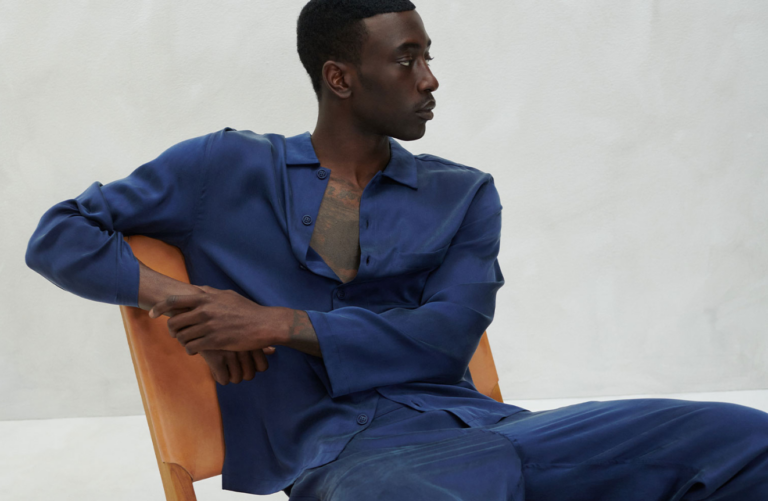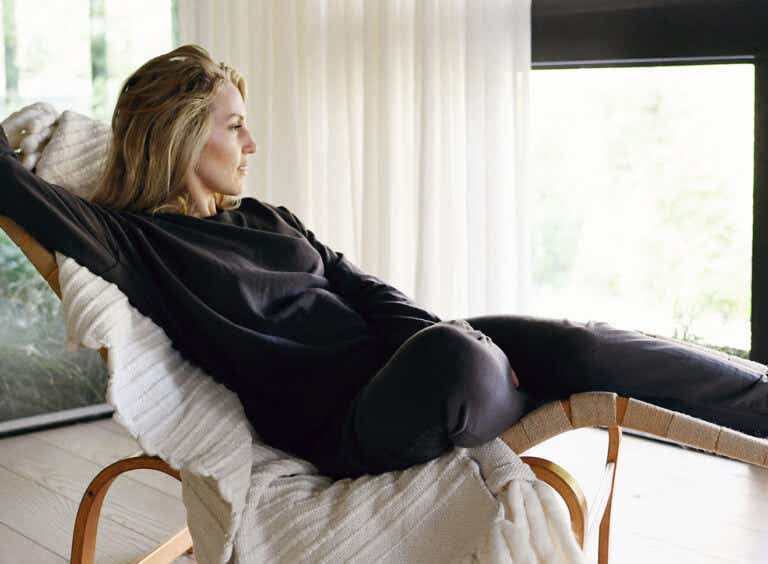About Lunya
Like many of us, Ashley Merrill never gave much thought to what she wore to bed. It was only when she happened to catch sight of herself in the mirror — wearing her husband’s old T-shirt and boxers — that Merrill realized how odd it is to treat leisure time as an afterthought when it’s her favorite time of day. Craving around-the-house clothing that reflected her personality, Merrill founded Lunya — and later expanded into men's options as well — to fill a void in the market. Lunya’s pajamas and loungewear are both effortlessly chic and comfortable, and come in machine-washable fabrics chosen for their irresistible softness and practicality. Made to work for everyday life while feeling anything but ordinary, Lunya’s apparel is what you’ll reach for at the end of a long day.

Why we love them
Before you scoff at the idea of “elegant” sleepwear, hear us out. We like our faded, oversized T-shirts as much as the next person, but Lunya makes an interesting point: If unwinding is vital to our mental health and productivity, why shouldn’t we value what we wear around the house as highly as what we wear in the outside world? With sleep sets starting at about $170, Lunya’s apparel is undeniably a splurge. However, it’s a high-quality, durable splurge that you’ll enjoy and use constantly. Lunya's fabrics are constructed with specific scenarios in mind, like cozy brushed flannel for chilly winter nights, cool pima for anyone who perpetually runs hot, and the signature washable silk for all seasons. KCM’s Lisa says her silk set is unbelievably comfortable, fits beautifully, and makes a thoughtful, luxurious gift…even if it’s for yourself.

Meet Ashley Merrill
For Ashley Merrill, founding a company dedicated to improving rest came at a time when she was getting almost no rest herself. Merrill decided to pursue Lunya just two weeks after finding out she was pregnant with her first child and proceeded to juggle pregnancy, motherhood, and a second pregnancy alongside the challenges of entrepreneurship in an industry that was new to her. Ashley spoke to KCM about Lunya’s intense design philosophy, the importance of rest, and balancing motherhood and running a business.

In conversation with Ashley
KCM: What was your initial vision for Lunya? Was there a particular item of clothing you had that you wanted to recreate?
Ashley: I started Lunya because I was wearing my husband’s old clothes around the house and I felt a tension between a desire to feel comfortable and a desire to feel put-together. I almost felt like I was two different people inside and outside the home, and I wanted to reconcile those worlds and feel like one person.
There’s this idea that surface texture and softness equal comfort, but it’s much more than that. It’s designing functional clothes that support what you’re doing in them. I’ll use one of our classics, The Robe, as the perfect example of this. I asked tons of my friends what they loved and hated about their robes. I got answers that dealt with how robes made people feel, which I love hearing about because it shows that what we wear can actually have an impact on our moods. I also got answers that touched on practical things: I can’t cook in my robe. I can’t wash my face. I get overheated. Sometimes I end up being too exposed.
So how did you work those findings into your design?
When you look at our robe, you’ll see that the front is designed so you can walk up stairs without tripping, and the sleeves are narrow all the way down so you can squish them back while cooking or washing your face. We used a lightweight, absorbent, and very soft loop terry on the inside, and then reversed the fabric on the back where your wet hair would hang. It has pockets that can fit your cell phone and an asymmetrical magnetic top that allows you to make sure it can be modest when needed.
Washable silk is your signature fabric. How did you turn silk into something you can wear every day, rather than something you’re scared to ruin?
Silk is so amazing because it’s nature’s creation; I couldn’t best it if I tried. It’s simultaneously delicate, soft, strong and thermoregulating — so it’s cool when you’re hot and warm when you’re cool — and it has this luxurious sheen to it. It’s literally a perfect fabric to sleep in, but the challenge is the ease of use. Silk is typically dry cleaned, which people are not going to do with their sleepwear. There are a lot of very proprietary processes that we do with our silk to give it a finish that holds up and does well in the wash.








